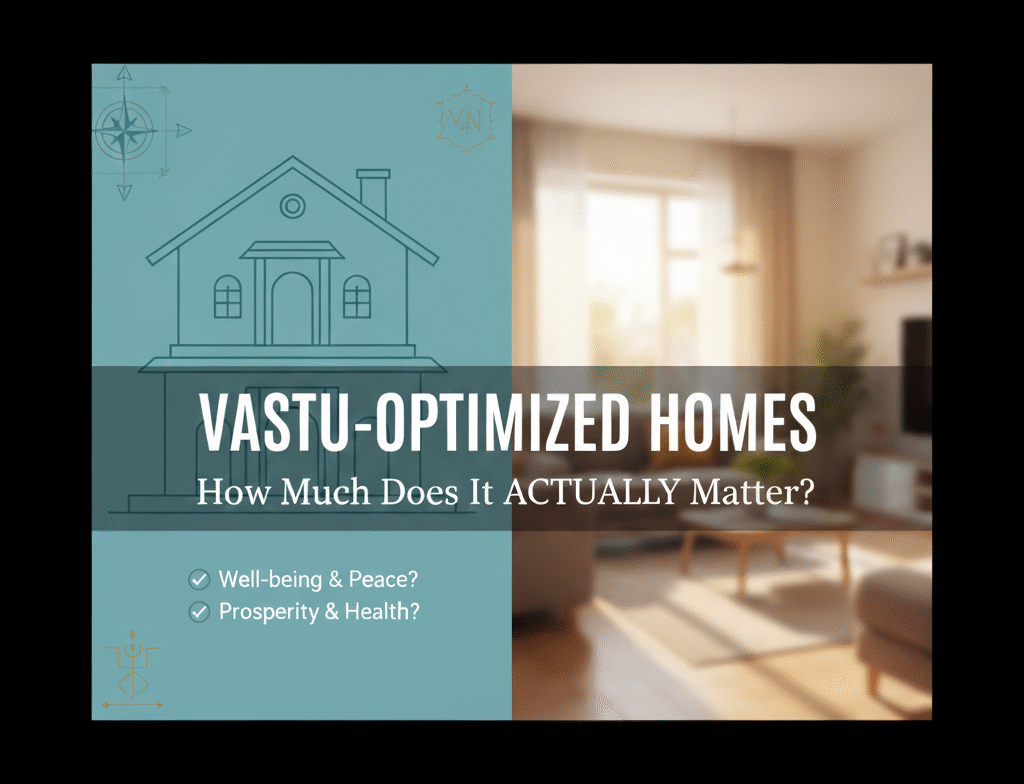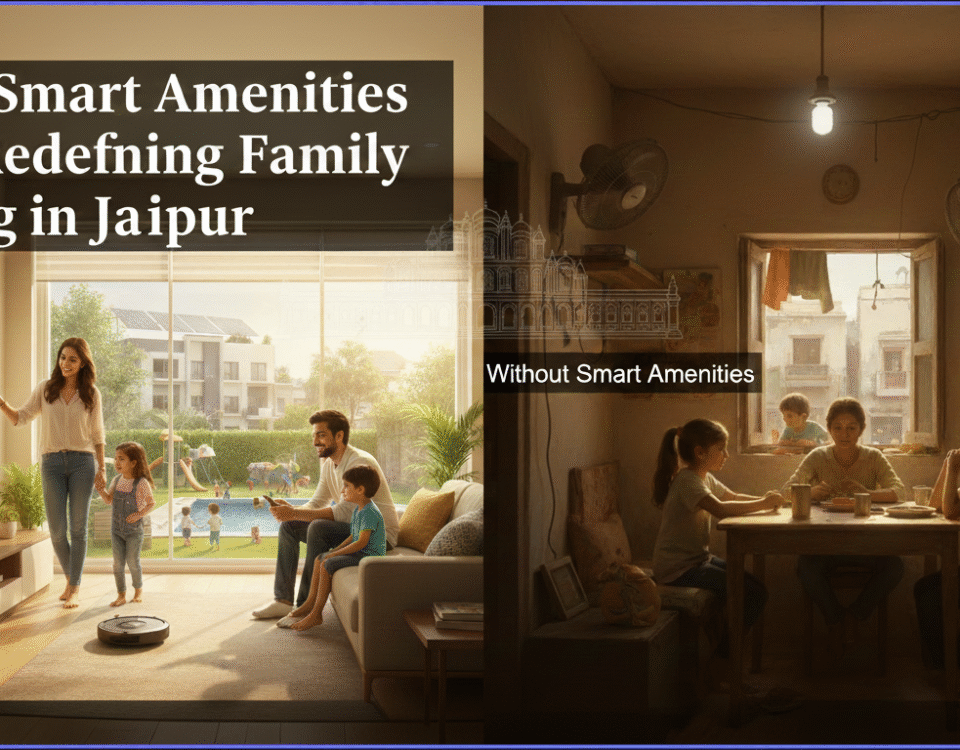When house hunting in India, you’ll inevitably encounter the term “Vastu-compliant” in property listings and conversations with real estate agents. This ancient architectural science, rooted in Vedic traditions, continues to influence modern homebuying decisions across the country. But in 2025, with contemporary lifestyles and modern apartment layouts, how much does Vastu compliance actually matter? Is it merely tradition, or does it carry real value for today’s homebuyers and investors? Understanding the practical implications of Vastu can help you make informed decisions without getting caught between cultural beliefs and modern pragmatism.
Understanding Vastu’s Real Impact on Property Decisions:
- Cultural Significance and Buyer Psychology: Vastu Shastra remains deeply embedded in Indian real estate culture. Many buyers, regardless of age or background, consider Vastu compliance essential for mental peace and positive energy. Properties that don’t meet basic Vastu guidelines often face rejection, even if they’re otherwise perfect. This cultural preference isn’t merely superstition—it reflects how people connect with their living spaces and seek harmony in their homes.
- Tangible Financial Impact on Property Value: The financial implications of Vastu compliance are measurable and significant. A Vastu-compliant property in Mumbai can command up to 10% higher prices than non-compliant units in the same area. In one documented case, a buyer added 8% premium (₹17.6 lakh) to a property’s base value specifically for Vastu compliance and favorable features. Vastu-compliant homes also enjoy higher resale values and sell faster because they appeal to a broader buyer base who prioritize these principles.
- Practical Design Principles That Make Sense: Beyond spiritual beliefs, many Vastu principles align remarkably well with modern architectural wisdom. The emphasis on natural light from the east, proper ventilation through strategically placed windows and doors, and functional room placement all contribute to healthier, more comfortable living environments. Homes with good natural lighting, cross-ventilation, and logical space planning naturally feel more pleasant—whether you attribute it to Vastu or contemporary design science.
- Key Vastu Elements Buyers Check: Homebuyers typically focus on specific Vastu aspects when evaluating properties. The main entrance facing north, east, or northeast is highly preferred as these directions are considered auspicious. Kitchen placement in the southeast corner, master bedroom in the southwest, and pooja room in the northeast are non-negotiables for many families. Additionally, toilets should avoid the center or northeast areas, and the home should receive ample natural light and air circulation.
- Developer Response and Market Reality: Real estate developers have recognized Vastu’s market importance and increasingly design projects with these principles in mind. Projects marketed as “Vastu-friendly” experience faster sales and attract premium pricing. Many builders now consult Vastu experts during the planning phase to ensure their properties meet buyer expectations. This trend is particularly strong in growing cities like Aurangabad, Pune, and Jaipur, where families specifically request Vastu-compliant layouts before booking.
- Modern Adaptations and Practical Solutions: The good news is that Vastu compliance doesn’t require compromising on modern aesthetics or functionality. Contemporary architects successfully blend Vastu principles with sleek designs, smart home technology, and efficient space utilization. Even if an existing property isn’t perfectly Vastu-aligned, simple remedies like furniture rearrangement, color adjustments, or adding specific elements can improve compliance without major renovations or structural changes.
- Investment and Rental Perspectives: From an investment standpoint, Vastu-compliant properties offer better rental yields and tenant retention. Tenants, particularly families, actively seek Vastu-friendly homes and are willing to pay higher rents for them. This translates to lower vacancy rates and steady rental income for investors. Properties adhering to Vastu principles also attract premium segment buyers—NRIs, business families, and affluent professionals—who view Vastu as an essential requirement rather than an optional feature.
- When Vastu Should Take Priority: Vastu becomes particularly important in certain situations. If you’re purchasing property in tier-2 or tier-3 cities where cultural beliefs remain strong, Vastu compliance significantly impacts resale potential. For families with elderly parents or those deeply rooted in traditional values, living in a Vastu-compliant home provides emotional comfort and peace of mind. Similarly, if you’re investing for resale rather than personal use, Vastu compliance expands your potential buyer pool and ensures faster liquidation when needed.
- The Balanced Approach for Modern Buyers: The smartest approach isn’t blindly following or completely dismissing Vastu—it’s understanding what matters most to you. Focus on core principles that enhance livability: proper natural light, good ventilation, logical room placement, and positive energy flow. These elements improve your daily living experience regardless of spiritual beliefs. Don’t let minor Vastu imperfections prevent you from buying an otherwise excellent property in a prime location with good infrastructure and appreciation potential.
Vastu-optimized homes do matter in India’s real estate market, but the degree of importance varies based on personal beliefs, investment goals, and target demographics. If Vastu compliance aligns with your cultural values and doesn’t compromise on location, budget, or practical needs, it’s definitely worth prioritizing. However, if the perfect property checks all other boxes but has minor Vastu deviations, consider consulting a Vastu expert for simple remedies before walking away. Remember, a home should ultimately feel right to you—whether that’s because of its Vastu alignment, modern amenities, strategic location, or simply the positive energy you feel when you walk in. Make your decision based on a balanced evaluation of tradition, practicality, and personal comfort rather than rigid adherence to any single factor.




